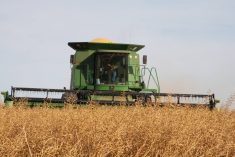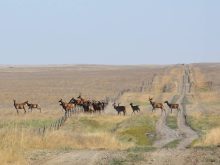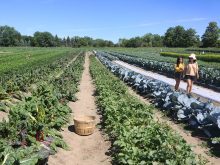CAMPINAS, Brazil (Reuters) — A Chinese agricultural firm sees Brazil corn production increasing by up to five percent per year in coming years and is investing to grab a third of the country’s corn seed market.
Longping High-Tech Agriculture Co, an agricultural firm controlled by China conglomerate CITIC Group Corp., bought its corn seed business from DowDuPont Inc. in Brazil for US$1.1 billion last year.
The company said at a gathering of investors and ag industry players that it will start building new seed plants in Brazil next year to increase production capacity beyond its current four installations. The plan is to boost its share in a market worth 15 billion reais (US$4.02 billion) from 15 percent currently to 30 percent in five years.
Read Also

New program aims to support plant-based exports to Asia
Understanding the preferences of consumers in Taiwan and how they differ from Indonesia or Malaysia isn’t easy for a small company in Saskatchewan.
The firm said a natural second step will be to enter the soybean seed business, which is dominated by U.S.-based Monsanto Inc.
“You see the opportunity, you do the assessment, you calculate returns… we are open-minded, and the CITIC heads are very supportive,” Kevin Chen, who oversees Longping’s Brazilian projects, told reporters.
He declined to reveal specific cost estimates for Longping’s projects in Brazil, but said that capital is not a problem.
Mozart Fogaça Jr., Longping’s head of operations for Latin America, said the company has no doubts regarding the continuing expansion of corn and soybean production in Brazil and has a long-term plan to benefit from it.
“The new ethanol plants will boost demand for corn in Brazil’s centre-west. And once logistics improves towards northern ports, soy and corn will continue to expand,” he said.
Brazilian producers in the nation’s key centre-west agricultural belt usually plant soybeans in the summer and corn right after the oilseed is harvested in a rotation system.
“Soy brings corn together. If soy production expands, corn follows,” Fogaça said.
Along with the new factories, Longping plans to build research centres to improve its corn seeds and to start developing new soybean and sorghum seeds, the executives said.
















